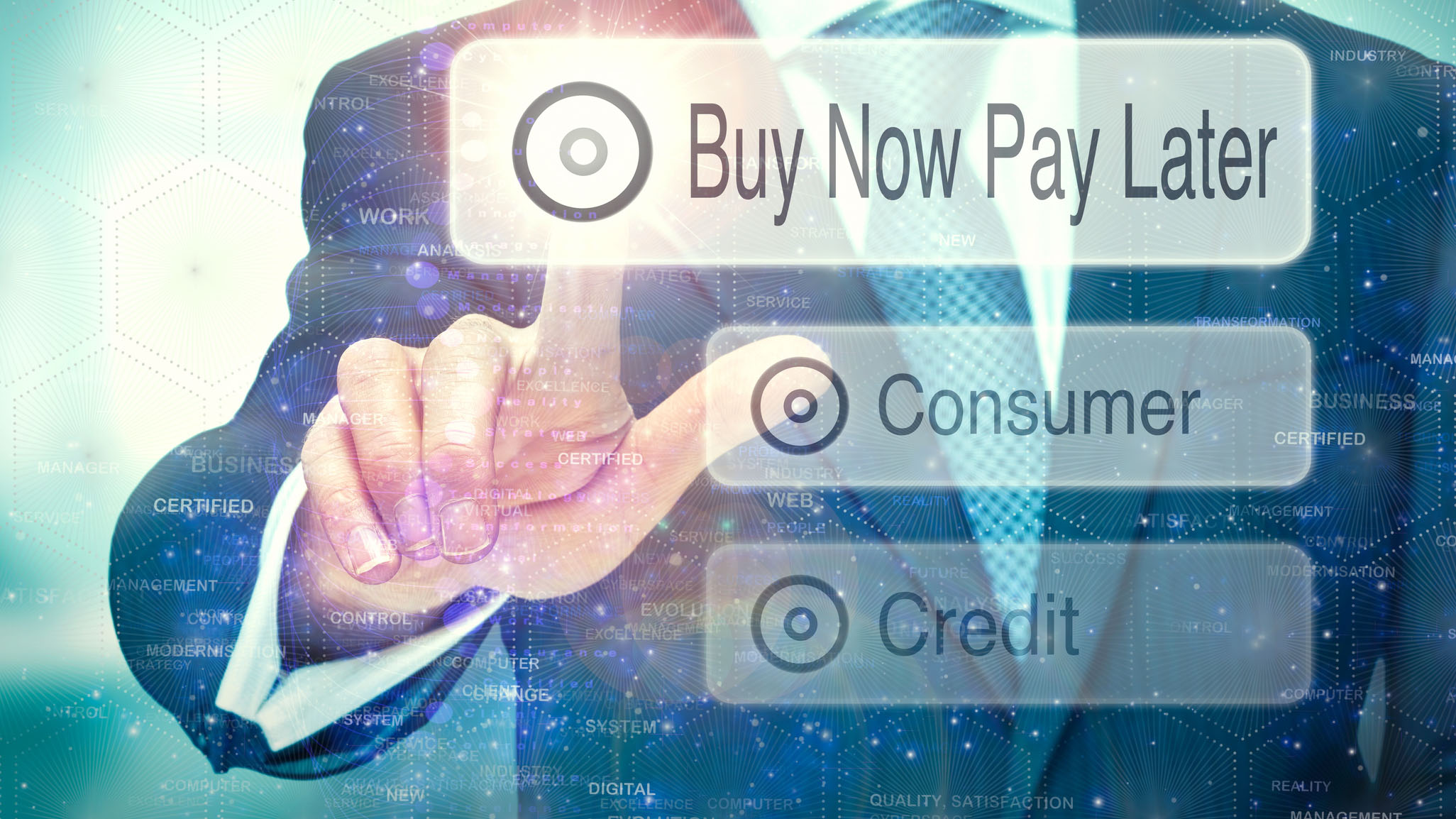
The rapid growth of the buy now, pay later industry during the pandemic points to irreversible shifts in consumer behaviour.
Buy now, pay later (BNPL) providers, which allow shoppers to split the cost of goods into instalments with no interest as long as full repayment is made on time, have flourished during the Covid-19 pandemic. The market leader, Sweden’s Klarna, boasts around 90 million customers in 17 countries and, following its latest funding round, is valued at $45.6bn.
BNPL accounts for 23% of e-commerce transactions in Sweden and 19% in Germany, according to Worldpay’s 2021 Global Payments Report. The UK saw BNPL transaction value increase by 60–70% in 2020 to reach £6.4bn, according to consultancy Bain & Company.
The BNPL industry’s rapid growth has encouraged a raft of established players to get in on the action. The past few months have seen Amazon sign a partnership with Affirm, US payments firm Square announce plans to acquire Australian Afterpay for $29bn and PayPal is set to acquire Japanese Paidy for $2.7bn.
“Underpinning the huge growth in the BNPL sector has been a massive shift in consumer behaviour,” says Tom Merry, managing director of banking strategy at Accenture. “BNPL offers a flexible payment option with instant approval, often without fees or interest, and no call on your credit score. From the consumers’ perspective, there’s a lot to like.”
UK challenger banks Revolut and Monzo are both introducing functions that will allow customers to spread payments over instalments. “BNPL offers flexibility for customers, helping helps them reduce costs rather than entering into potentially more expensive credit agreements,” says Aleksej Polukarov, head of credit product at Revolut.
Wider credit options
The segment that stands to lose out from the growth of BNPL is credit cards, which represents a key revenue stream for many financial institutions. More than two-thirds of UK consumers that use BNPL services also own a credit card, according to research conducted by Bain & Company. “They are actively choosing BNPL over a credit card,” says Ryan Garner, associate partner at Bain & Company. “It represents a more attractive option.”
According to research by fintech Marqeta, seven out of 10 consumers reported that they prefer BNPL options over credit cards, citing affordability and ease of management. More than half said they expected BNPL to replace their use of credit cards over time.
BNPL is tied to a specific purchase with a clear repayment plan to get people out of debt, as opposed to credit cards, which encourage people to stay in debt
As credit cards often carry an annual percentage rate of more than 20%, the reasons behind this shift in consumer behaviour are obvious, says Alex Marsh, head of Klarna UK. “BNPL is tied to a specific purchase with a clear repayment plan to get people out of debt as opposed to credit cards, which encourage people to stay in debt,” he says.
The BNPL boom has encouraged credit card giant Mastercard to expand its infrastructure to enable incumbent lenders to offer BNPL services. A new programme, Mastercard Instalments, will be offered in the US, Australia and the UK from next year.
Many incumbent banks are weighing up how to respond to the growth in BNPL, says Mr Garner. “The challenge is how to balance a move into BNPL with the impact it will have on existing products, such as credit cards,” he says. “It puts some banks in quite a tricky position.”
Regulator concerns
The rapid growth of the BNPL sector has led to regulators voicing concerns that such easy access to credit may create new risks for consumers. In October, the UK government launched a review of the sector after the Financial Conduct Authority called for urgent intervention.
Last month, the Reserve Bank of Australia announced it planned to prohibit merchants from passing on surcharges for their services, nullifying one of the BNPL sector’s key advantages. The EU, meanwhile, is planning to update its consumer credit rules in response to the growth of the sector.
“Regulators around the world are right to be concerned about whether this model will become a ticking time bomb of unsustainable debt,” Mr Merry says.
As regulators step up their oversight and new entrants pile into the BNPL industry, Klarna has been on an acquisition spree as it looks to diversify its business. This year, the group has bought ‘social shopping’ start-up Hero, German shopping app Stocard, influence marketing provider APPRL, travel planner Inspirock and Nordic price comparison service PriceRunner.
The acquisitions are part of a wider strategy by the Swedish fintech to embed itself into every aspect of the customer shopping journey, says Mr Garner. “If you look at the positioning of some leading BNPL companies, it’s not necessarily focused on payments or even BNPL — it’s about shopping,” he says. “The focus is on creating a seamless and complete customer experience.”
The onset Covid-19 has irreversibly changed the payments industry, says Ian Johnson, managing director of Europe at Marqeta, spurring the rapid rise of alternative payment options. “The boom in online shopping due to global lockdowns, combined with the ongoing financial insecurity for millions of households, has created a perfect storm for the surge in BNPL use,” he says.
“Consumers want to be in control of how they pay, with greater transparency, convenience and the ability to monitor spending. If banks don’t respond to shifting customer demand, they risk being left behind by more forward-thinking competitors,” he adds.


